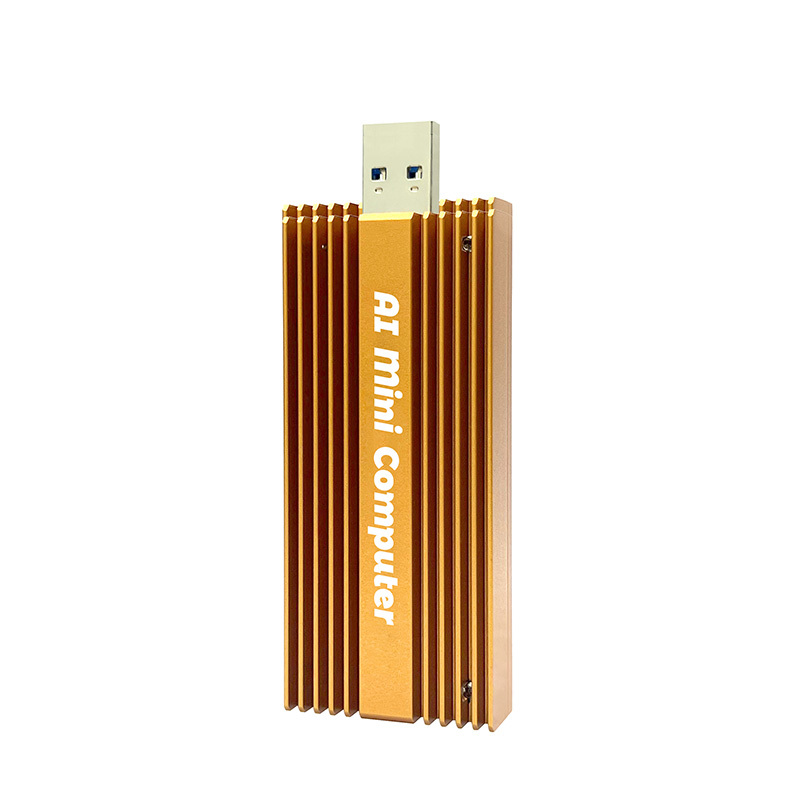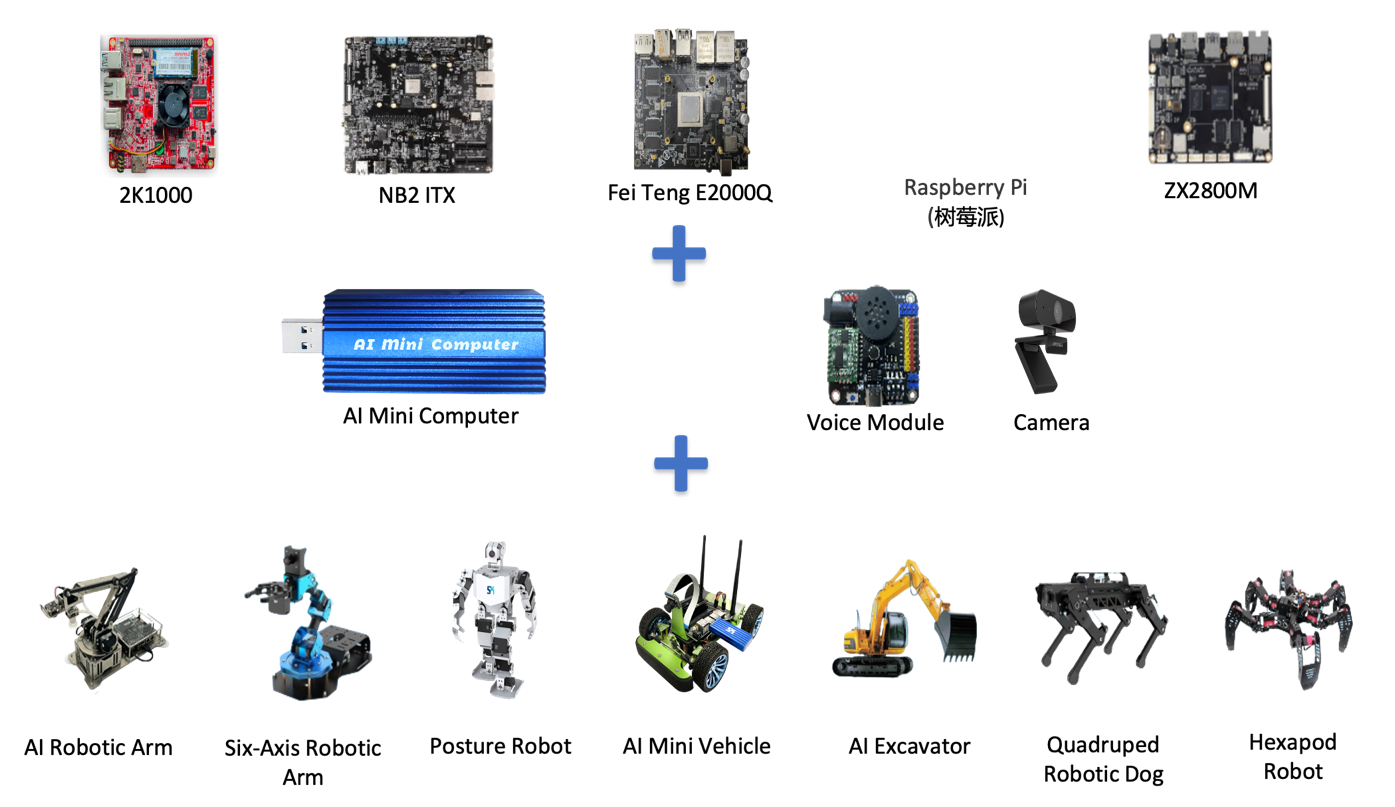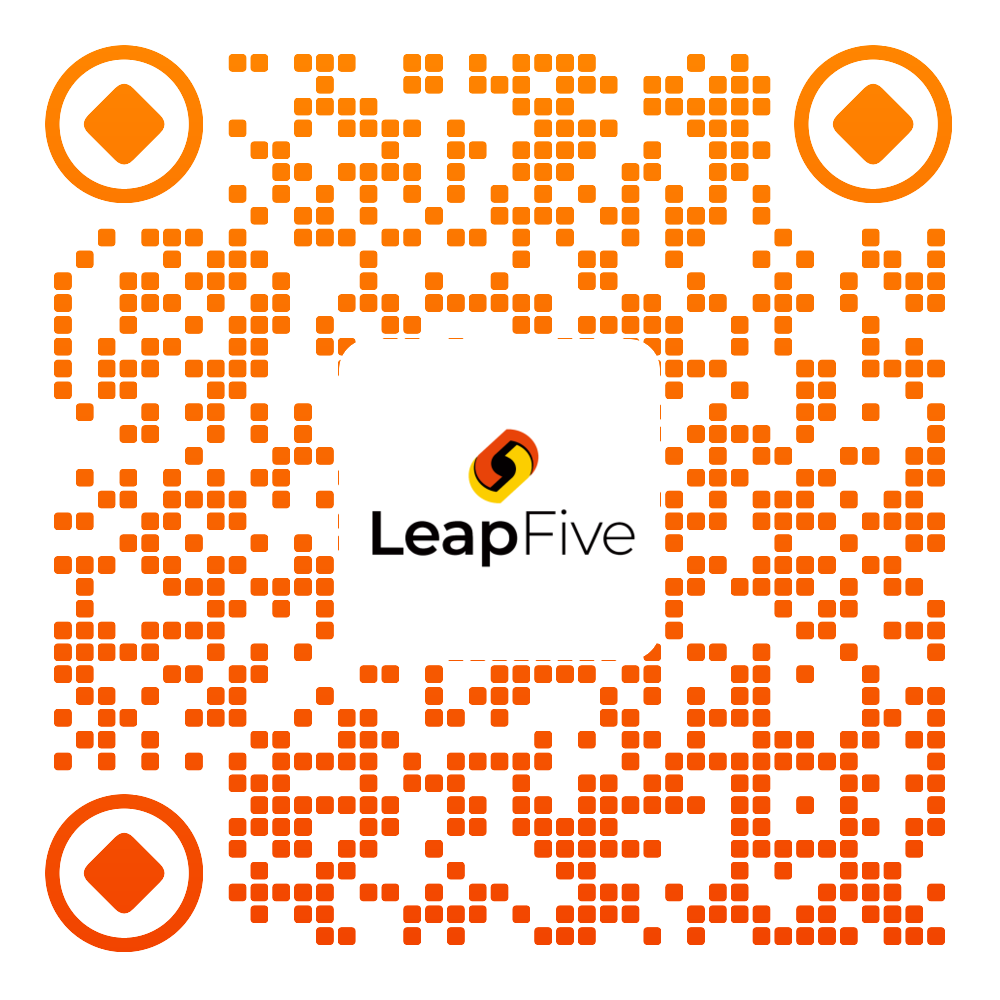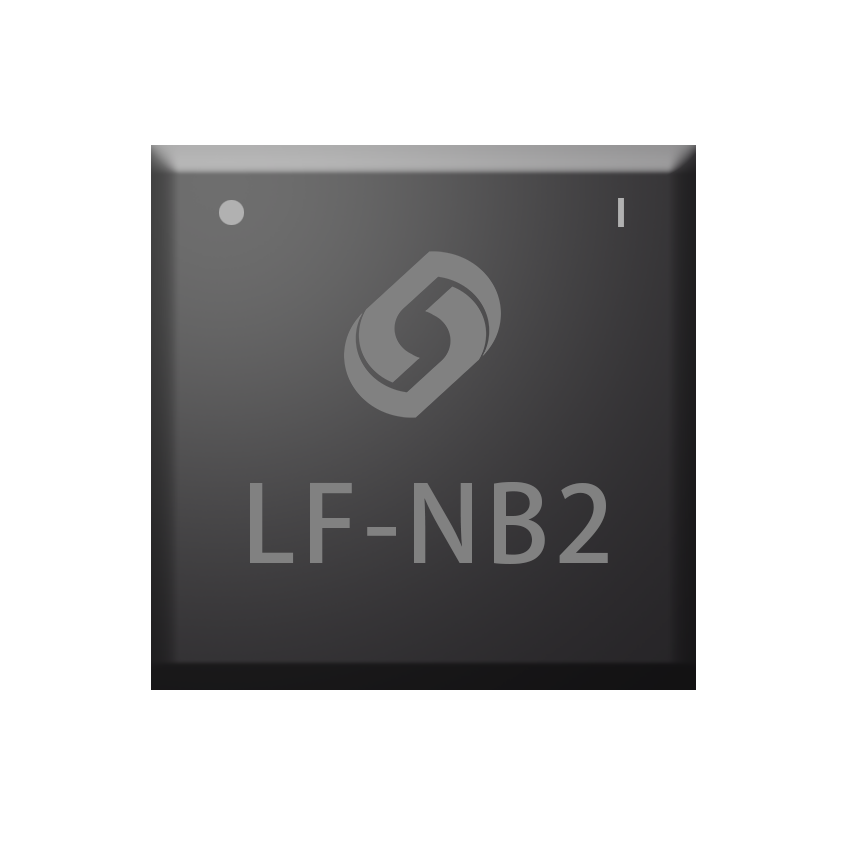AI Mini Computer (AMC)
Product Description
Parameter
Target Applications
Terminal Devices
Applications
Documentation
Features
Content 1
Content 2
Content 3

Overview
The LeapFive AMC (AI Mini Computer) is an AI computing integrated device developed based on the NB2, designed as a deep learning inference tool for various edge applications. With 4 TOPS of computing power, the NB2 supports functionalities such as face detection, recognition, facial expression analysis, object detection, license plate recognition, and voiceprint recognition. The AMC enhances traditional products with deep learning capabilities and is widely applicable to emerging fields such as smart industrial control systems, robotics, industrial computers, smart toys, and intelligent teaching tools.
Features
Features
Core Specifications
• CPU: 4x 64-bit RISC-VCore@1.5 GHz
• Computing Power: 2/4 TOPS
• Memory: 2/4/8GB DDR4/LPDDR4
• Storage: 8/16/32GB eMMC
Support Models
• SSD
• Yolov5
• Deplabv3
• Mobilenetv1v2
• Resnet
• Repvgg
Physical Interface
• USB 3.0(Not compatible with USB 2.0)
Operating Conditions
• Operating Temperature: -10~40℃
• Operating Humidity: 5%~90%, non-condensing
AI teaching aids

EN_NB2 chip(LF566)
Download
EN_AI Mini Computer
Download
News


Video




